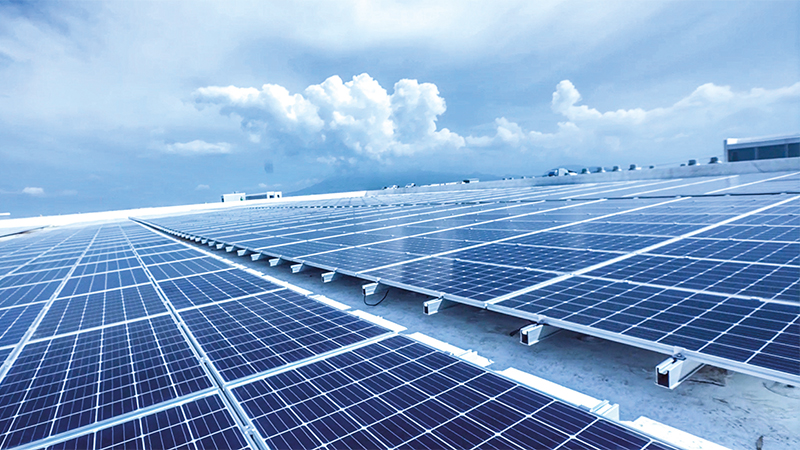Environmental issues are of increasing societal concern and have brought many challenges to our society. Today we are facing the consequences of climate change such as melting ice caps, rising sea levels, and changing weather patterns. We all need to address these issues and, as a global organization, we recognize that we have a key role to play in reducing our environmental impact.
As with most industries, the environment has a direct impact on our business. We also know that our operations impact the environment, through resource usage, emissions, and waste generation, and we strive to minimize this impact.
By implementing sustainable business practices, we are able to conserve resources, protect biodiversity, reduce waste, manage costs, and meet the growing consumer demand for more sustainable products - bringing benefits to both the environment and our business.
This approach is explained in the JT Group Environment Policy.
Environment

In setting specific goals and initiatives for ‘the JT Group Sustainability Targets’, we placed importance on the relationships and ties with the revised materiality, while also including past initiatives. In pursuing our materiality ‘Living with the Planet’, we set targets related to environmental issues.
Please refer to the following for targets related to ‘Living with the Planet’.
Read more about the JT Group Sustainability Targets and 2024 Results.
| Materiality | Target topics | Targets | |
|---|---|---|---|
 |
Biodiversity impact assessment | Each of the JT Group businesses will perform assessments to evaluate its impact and dependency on ecosystem, including biodiversity aspects. Impact assessments of our tobacco business will be performed by 2024, and our processed food business by 2025. | |
 |
 |
Emissions reduction |
The JT Group will reduce its emissions and commits to be Carbon Neutral for its own operations by 2030 and achieve Net-Zero Greenhouse Gas (GHG) emissions across its entire value chain by 2050.
*FLAG: The Forest, Land, and Agriculture sector. FLAG-related GHG emissions include emissions originating from forestry, land-use, agriculture, and other land-based activities |
 |
Renewable electricity |
2050, the JT Group will transition all of our energy use to zero carbon energy.
|
|
 |
Protecting water |
The JT Group will engage in responsible water management and will pursue the following:
|
|
 |
 |
Enhancing biodiversity - No deforestation, no conversion |
With a view to enhancing biodiversity, the JT Group will contribute further to preserving forestry by pursuing the following in our tobacco business supply chain:
|
 |
 |
Waste reduction |
The JT Group will further reduce the environmental impacts of waste associated with its processes and products.
|
 |
  |
Designing for circularity - Packaging, product and device |
The JT Group will reduce our packaging (including plastic) and ensure that the remaining is 88% reusable or recyclable by 2025, rising to 100% by 2030.
*RRP (Reduced-Risk Products): Products with the potential to reduce the risks associated with smoking |
 |
 |
Sustainable agriculture | Our tobacco business will complete the elimination of Criterion 1 Highly Hazardous Pesticides (HHPs) from its direct tobacco leaf supply chain in 2024 and eliminate the use of all HHPs by 2040. 100% of our directly-contracted growers will have adopted Good Agricultural Practices (GAP) Protocol of our tobacco business by 2030. |
 |
   |
Internal and external collaboration | To promote collaborations within the Group across regions and functions, we will provide opportunities for collaborations while also proactively engage in collaborating with external parties to contribute to the development of inclusive and sustainable communities. Between 2015 and 2030, our employees will contribute 300,000 volunteering hours. |
 |
 |
Community investment | Between 2015 and 2030 we will invest US$600 million to help make communities inclusive and resilient, with our employees contributing 300,000 volunteering hours. |
 |
 |
||
Read more on our environmental initiatives on the following pages.
- Climate Change
- Biodiversity, Water, Forestry, Sustainable agriculture
- Waste, Packaging & Circularity
For details of other initiatives, please see the Community investment.